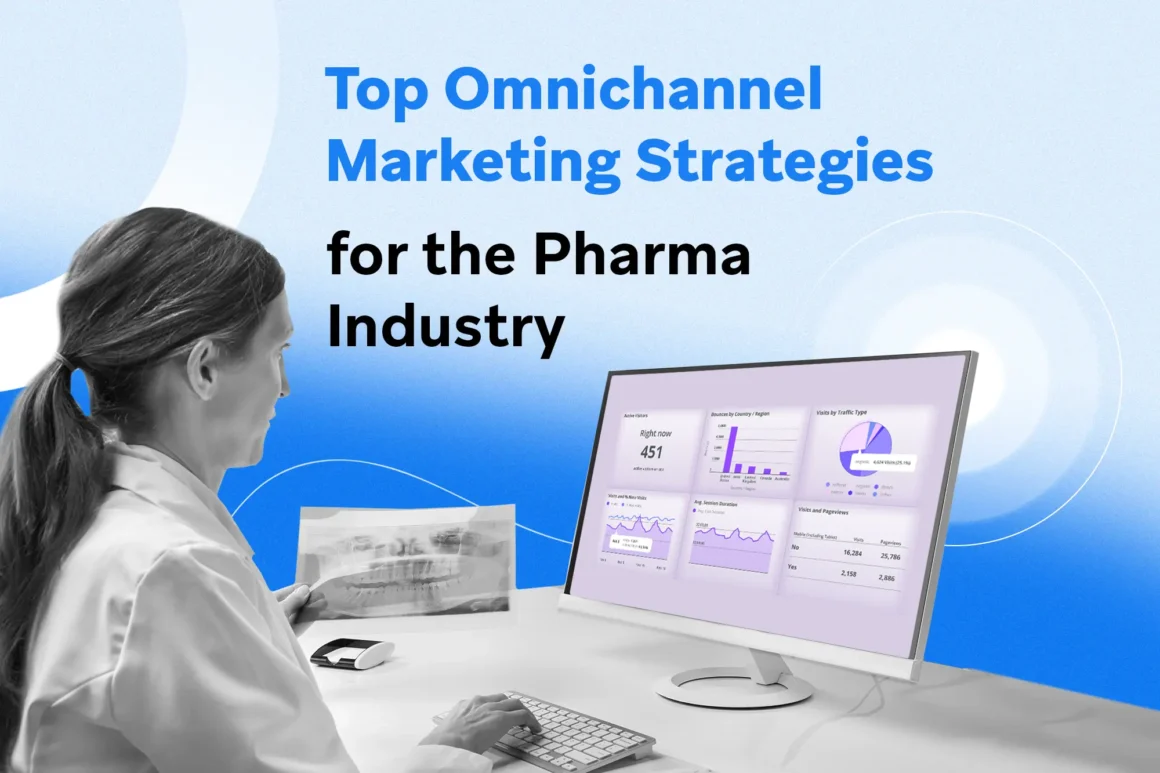Omnichannel marketing combines different channels, both digital and traditional, to create a seamless customer experience. In the pharma industry, this strategy is vital for delivering consistent messaging and engagement across all touchpoints. Learn top strategies to master omnichannel marketing in pharma.
Key Takeaways
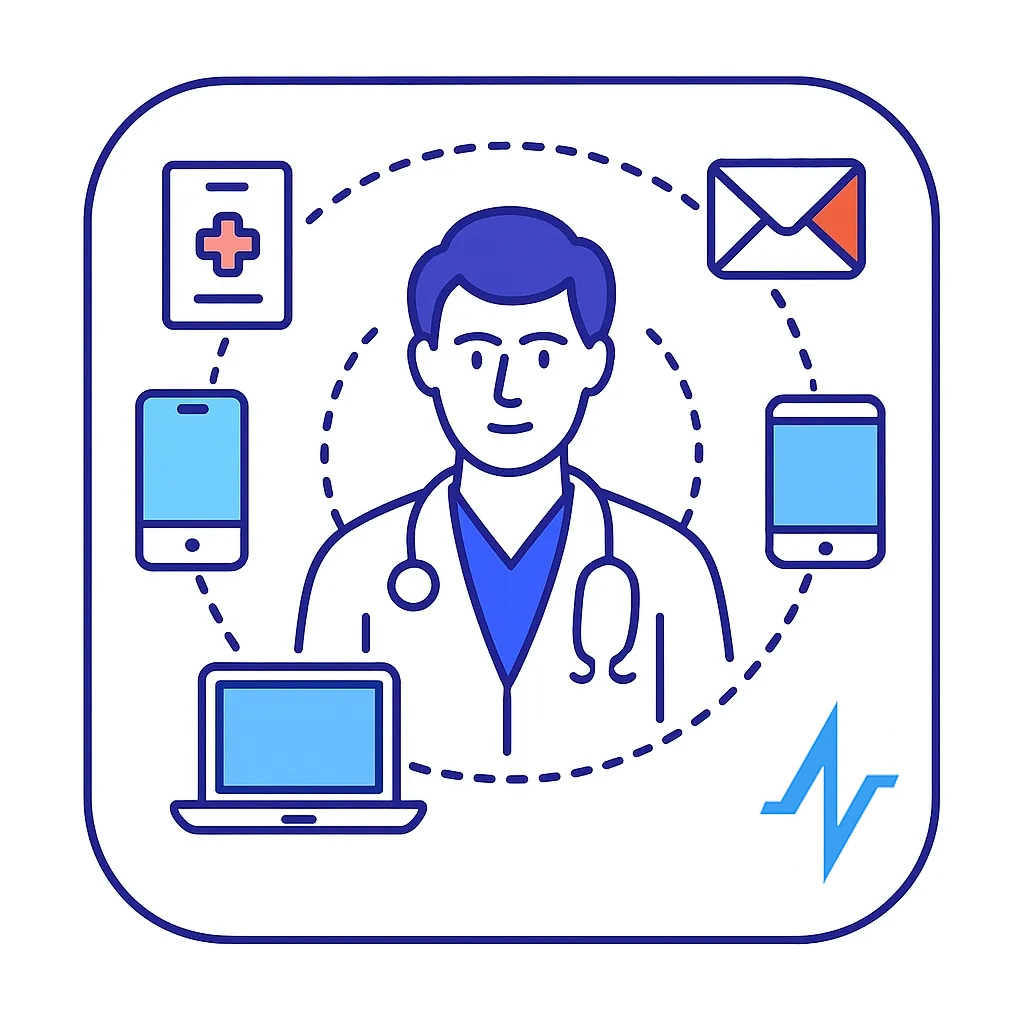
- Omnichannel marketing in pharma integrates multiple channels for a seamless customer experience, emphasizing a customer-centric approach to enhance engagement.
- The shift from multichannel to omnichannel strategies, accelerated by the COVID-19 pandemic, improves targeting and communication with healthcare professionals across digital platforms.
- Healthcare companies implementing omnichannel marketing face challenges such as overcoming regulatory hurdles, securing data privacy, and using data analytics to personalize customer interactions effectively.
Understanding Omnichannel Marketing in Pharma
Omnichannel marketing in the pharmaceutical industry focuses on creating seamless, customer-centric experiences. Unlike traditional marketing channels that operate in silos, omnichannel marketing integrates multiple channels to provide a unified customer experience. Relying solely on traditional methods is less effective in the digital age, as modern strategies require integration across various platforms to reach healthcare professionals and other stakeholders effectively. This approach is critical because modern customer journeys are non-linear, involving interactions across various channels such as digital platforms, emails, and face-to-face meetings, enhancing omnichannel customer engagement.
At the heart of this strategy is the use of data to understand customer journeys and behavior patterns.
Integrating all marketing channels helps pharmaceutical companies create cohesive marketing materials that align with their marketing objectives, promoting brand recognition and trust.
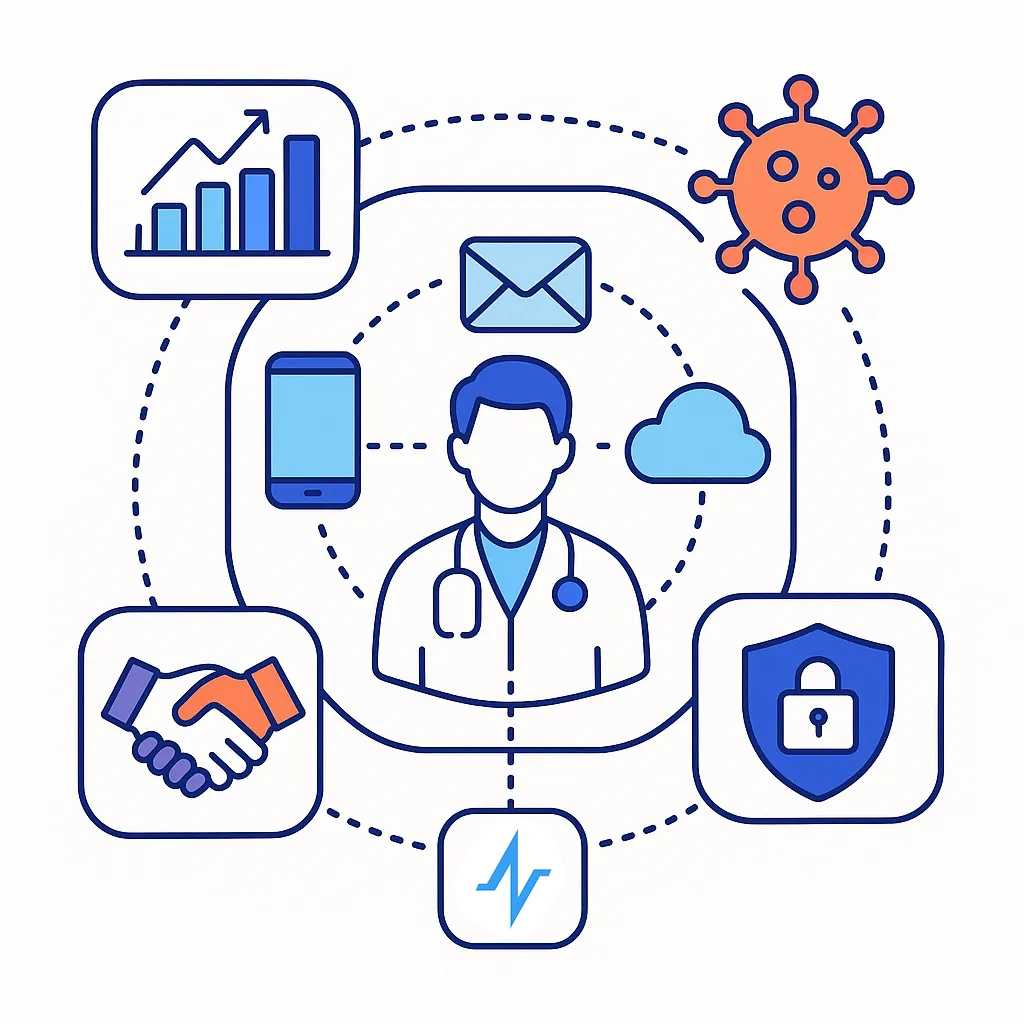
Customers, including patients and healthcare professionals, should be at the forefront of the omnichannel strategy. Pharma marketers must therefore adopt a customer-centric approach.
Omnichannel vs. Multichannel Pharma Marketing: How to Reach HCPs on Their Terms
Multichannel marketing utilizes separate channels independently to reach healthcare professionals, employing methods such as:
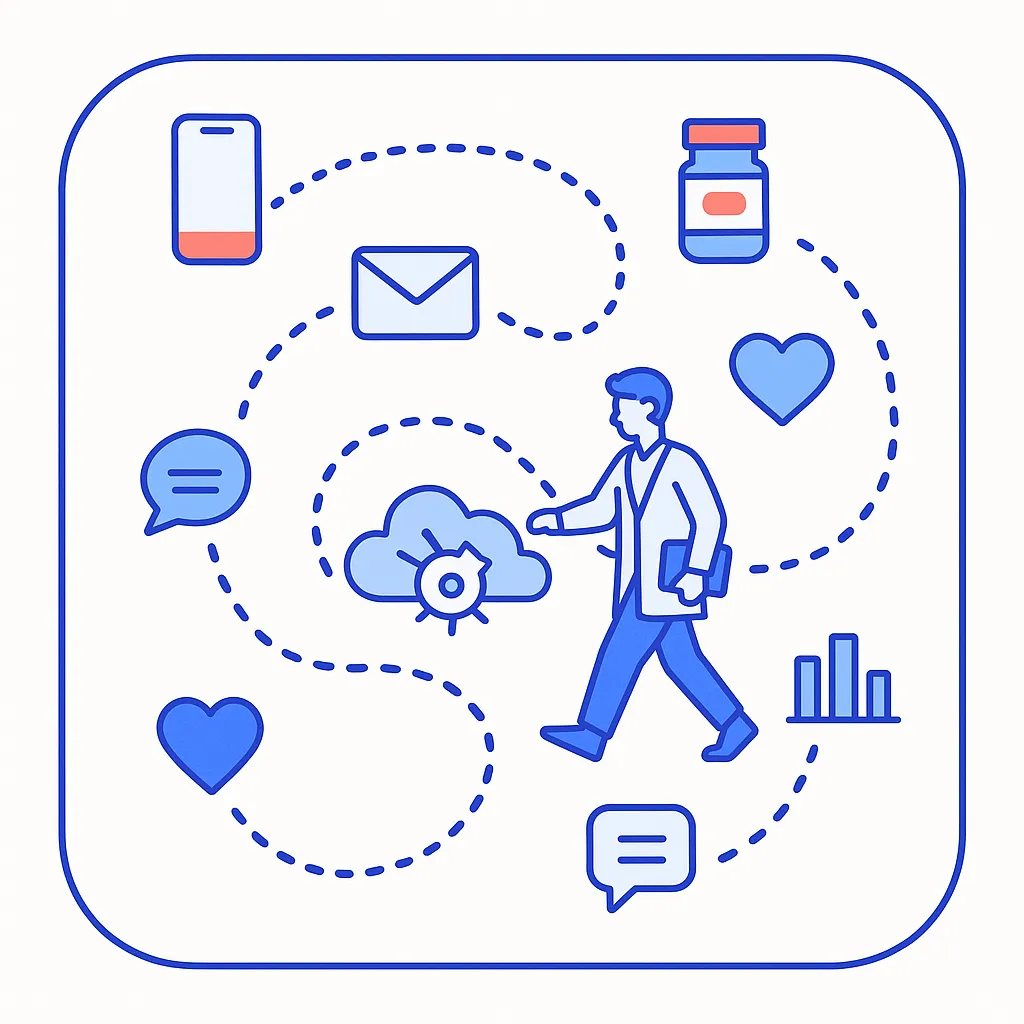
- Emails
- Traditional Mail
- Mobile apps
- Text & SMS messages
- In-person visits
While effective, this siloed approach often lacks the integration needed for a consistent customer experience. In contrast, omnichannel marketing connects various channels to provide a seamless user experience, making it more effective for reaching HCPs.
Healthcare professionals increasingly prefer digital channels engagement, with a significant shift observed from in-person interactions to online channels post-COVID. This makes omnichannel engagement crucial for pharma marketers aiming to maintain consistent messaging and engagement across multiple touchpoints and digital interactions.
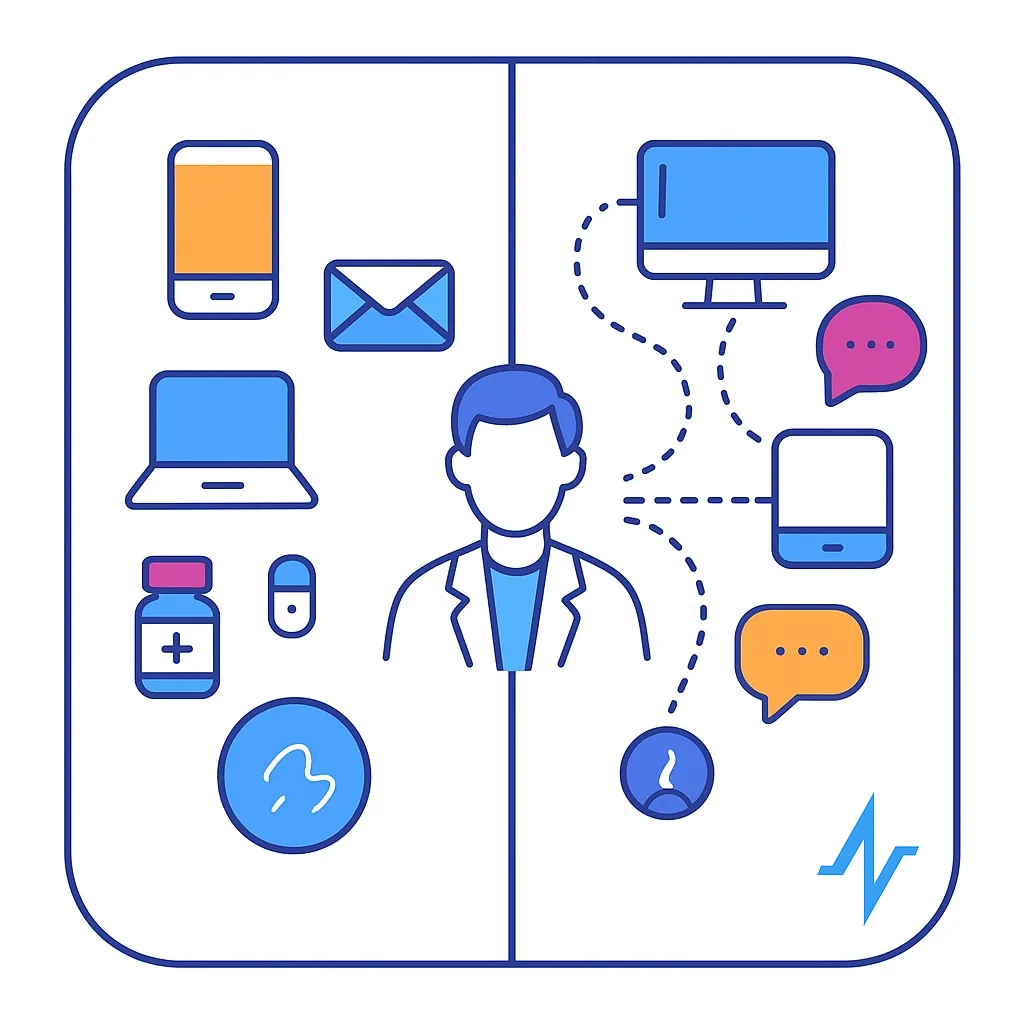
Unlike multichannel marketing, which can often result in fragmented communications, an omnichannel strategy ensures that HCPs receive more targeted communications tailored to their preferences and behaviors. The omnichannel journey guides HCPs through personalized, integrated touchpoints, aligning with their needs and behaviors to create a cohesive and strategic experience.
The Evolution of Omnichannel Strategies in Pharma
The transition to omnichannel marketing has become essential for effectively reaching audiences in the pharmaceutical sector. The necessity for a unified customer experience across various platforms has driven this shift, making omnichannel strategies a cornerstone of modern pharma marketing. The pandemic acted as a significant turning point, prompting pharmaceutical companies to prioritize omnichannel marketing efforts to maintain engagement and reach their audience effectively.
Pharmaceutical companies that utilize omnichannel pharma marketing often see improved customer awareness and engagement.
By integrating multiple touchpoints, a pharma omnichannel marketing strategy addresses the unique challenges of reaching target audiences in pharma.
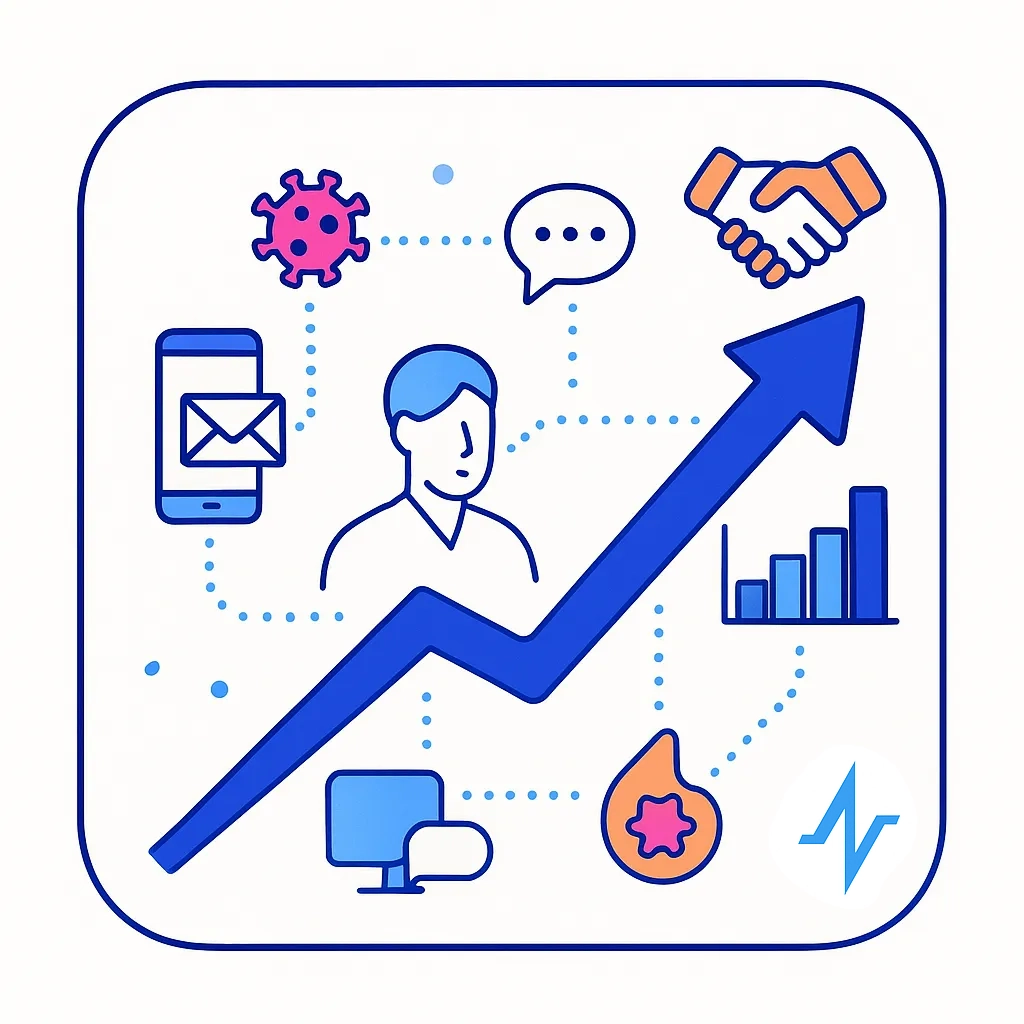
This approach not only enhances customer engagement but also ensures that the marketing message is consistent and impactful across all platforms.
The digital revolution and advanced analytics have further driven the transformation towards omnichannel digital marketing in pharma. With the ability to gather and analyze data from various channels, pharma companies can tailor their marketing efforts to meet the specific needs and preferences of their audience. This data-driven approach allows for more personalized and effective marketing strategies, ultimately leading to better customer experiences.
Key Components of Successful Omnichannel Marketing
A successful omnichannel strategy in pharma hinges on delivering the appropriate content in the right format at the optimal time. Understanding audience pain points, motivations, needs, and goals is crucial for personalizing your marketing message.
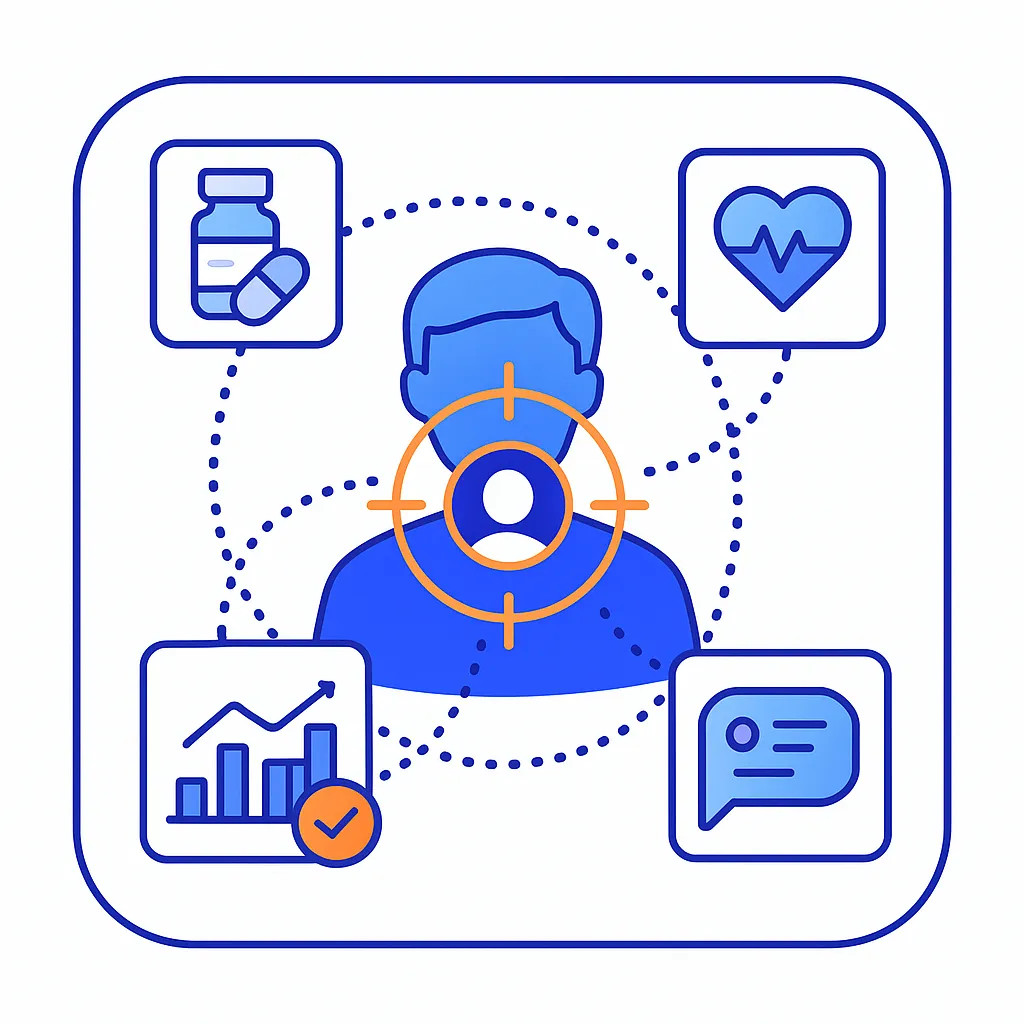
Effective connectivity in an omnichannel environment involves ensuring HCPs can easily access content and encouraging further engagement after initial contact.
A well-integrated digital journey ensures consistent messaging and a unified experience across all platforms.
Lastly, comprehensive measurement in omnichannel marketing should link various metrics to the overall customer journey and strategic goals.
Relevance in Content Delivery
Personalization in content delivery is a key advantage of multichannel marketing in the pharma industry. By curating the experience for healthcare professionals, content becomes easier to access, thus increasing visibility and impact. Messages tailored differently for various platforms resonate more effectively with each audience, ensuring that the information delivered is both dynamic and relevant.
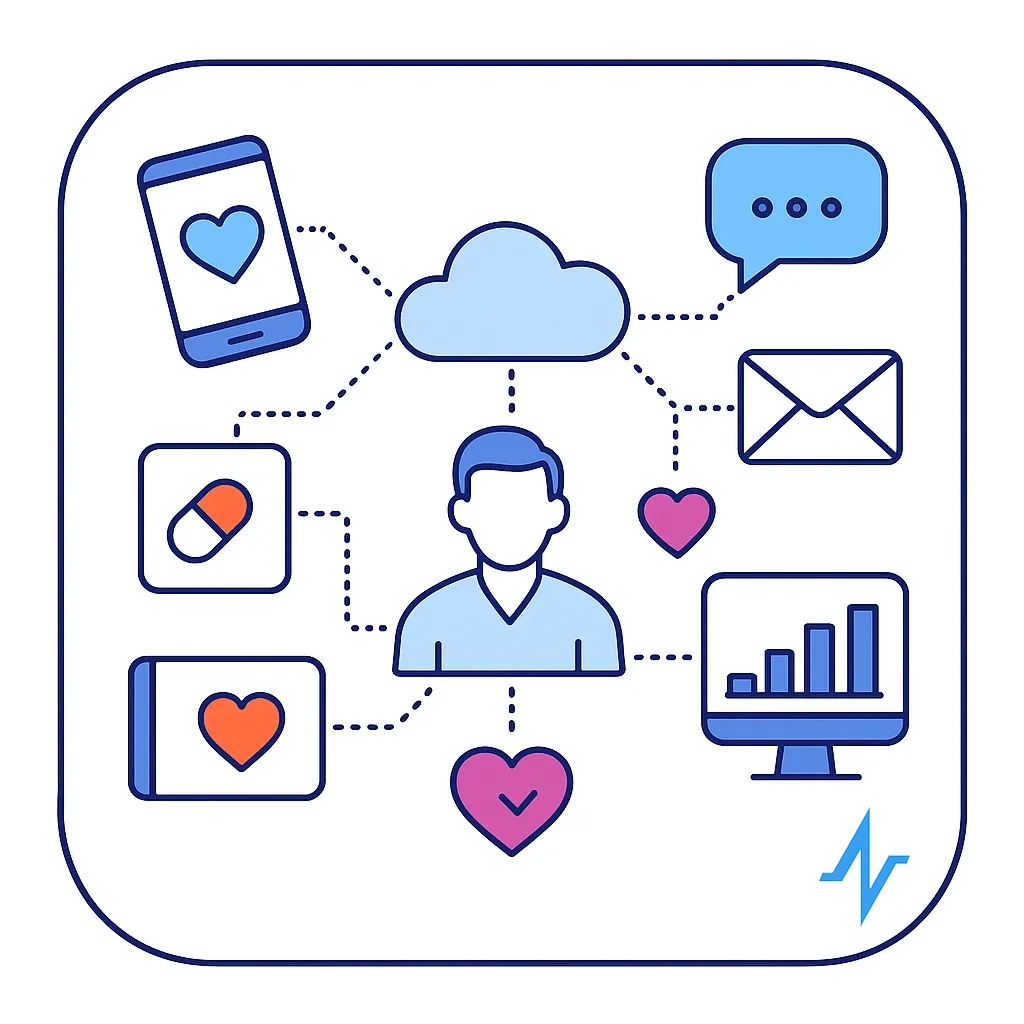
The Pulse Engagement Cloud enables personalized marketing campaigns by automating outreach based on healthcare professional data. This automation ensures that the right content reaches the right audience at the right time, enhancing customer centricity and engagement.
Ensuring Seamless Connectivity
Effective data management and analysis are essential for accurate audience profiles in an omnichannel strategy. Key points include:
- High-quality, properly structured data allows for dynamic analytics.
- Dynamic analytics enable real-time analysis and adaptive marketing strategies.
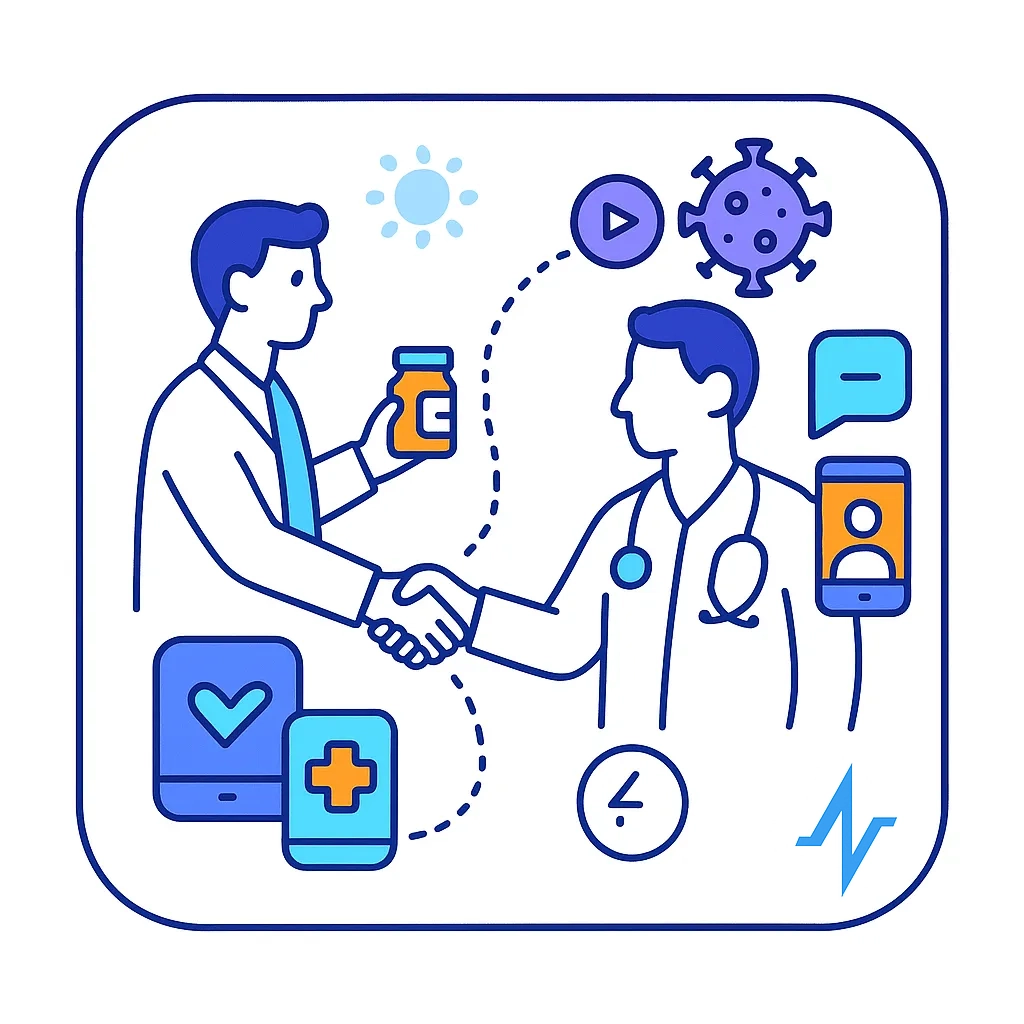
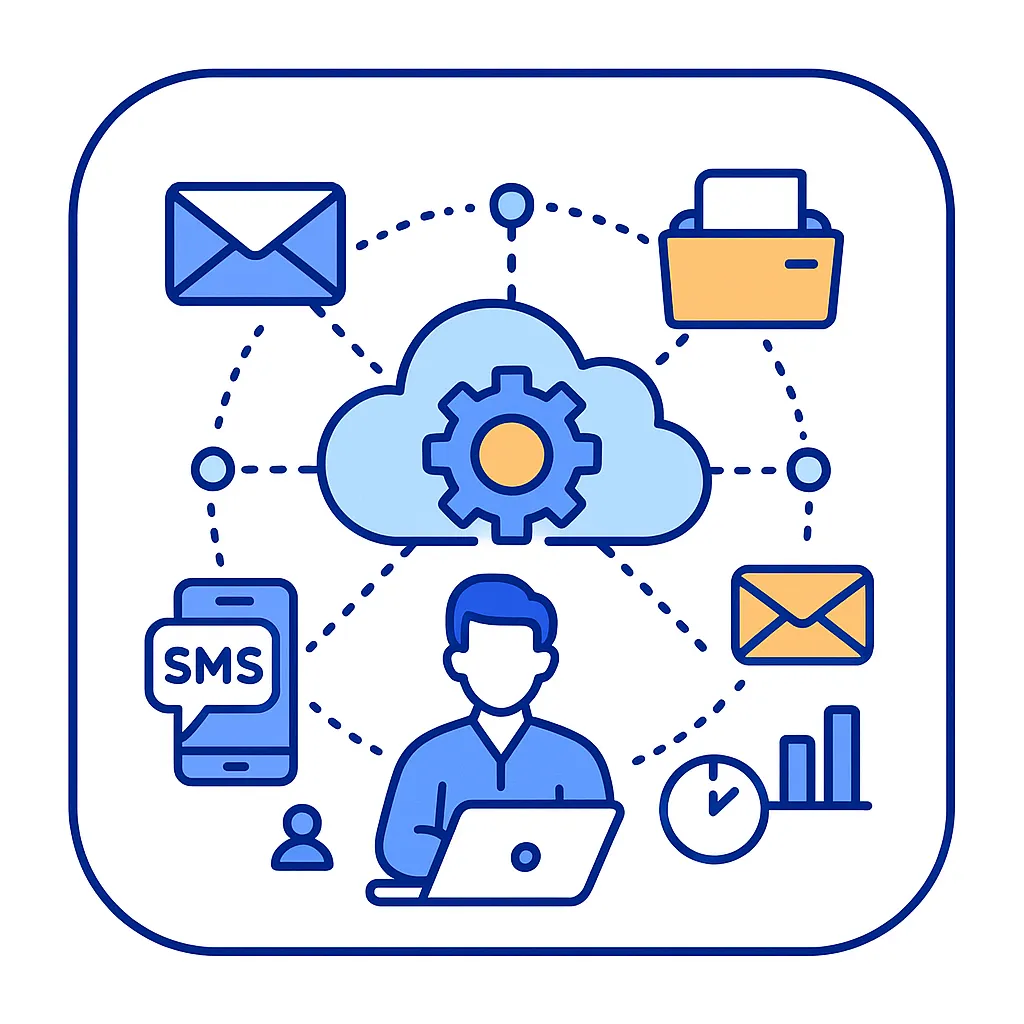
- Tools such as live chats and mobile apps are effective for disseminating personalized, relevant information to gather data.
- These tools help ensure a seamless customer experience.
Integrate data across platforms enhances the journey for HCPs, preventing content access points from becoming dead ends. This integration ensures that communication channels are cohesive, providing a unified customer experience that encourages further engagement after initial contact.
Measuring Success Metrics
An effective metric for pharma marketing success connects directly to customer behaviors and interactions throughout their journey. Tracking multiple metrics across various communication channels provides insights into the effectiveness of marketing strategies. However, this can be complicated due to fragmented data across various channels.
Understanding the impact of sales and educational efforts on the HCP journey is crucial.
Measuring success metrics comprehensively helps in linking these efforts to the overall customer journey and strategic goals, enabling smarter campaigns and improved customer insights.
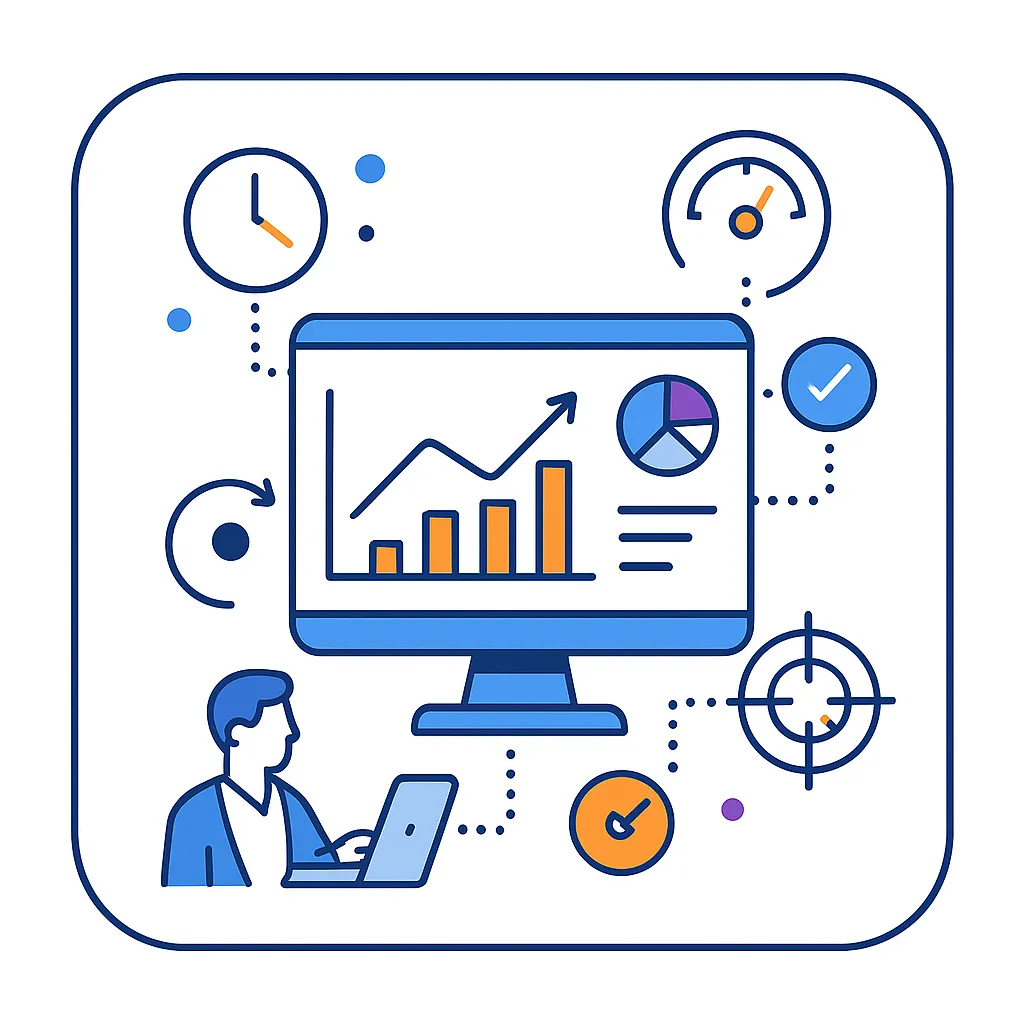
Challenges in Implementing Omnichannel Marketing
Pharma companies face several challenges in implementing omnichannel marketing, including navigating regulatory constraints, ensuring data privacy and security, and maintaining integration and consistency across channels. Many pharma companies encounter these issues as they strive to adapt to a rapidly changing landscape in omnichannel pharma.
These interconnected challenges require practical tips, careful planning, and execution to overcome.
Navigating Regulatory Constraints
Pharmaceutical marketers face complexities in creating omnichannel experiences due to varying regulations in local markets. Compliance with these regulations can significantly impact the design and execution of marketing strategies, often hindering the seamless execution of global campaigns. An adaptive strategy that aligns with regulatory requirements is essential for sustaining effective omnichannel marketing in the pharma industry.
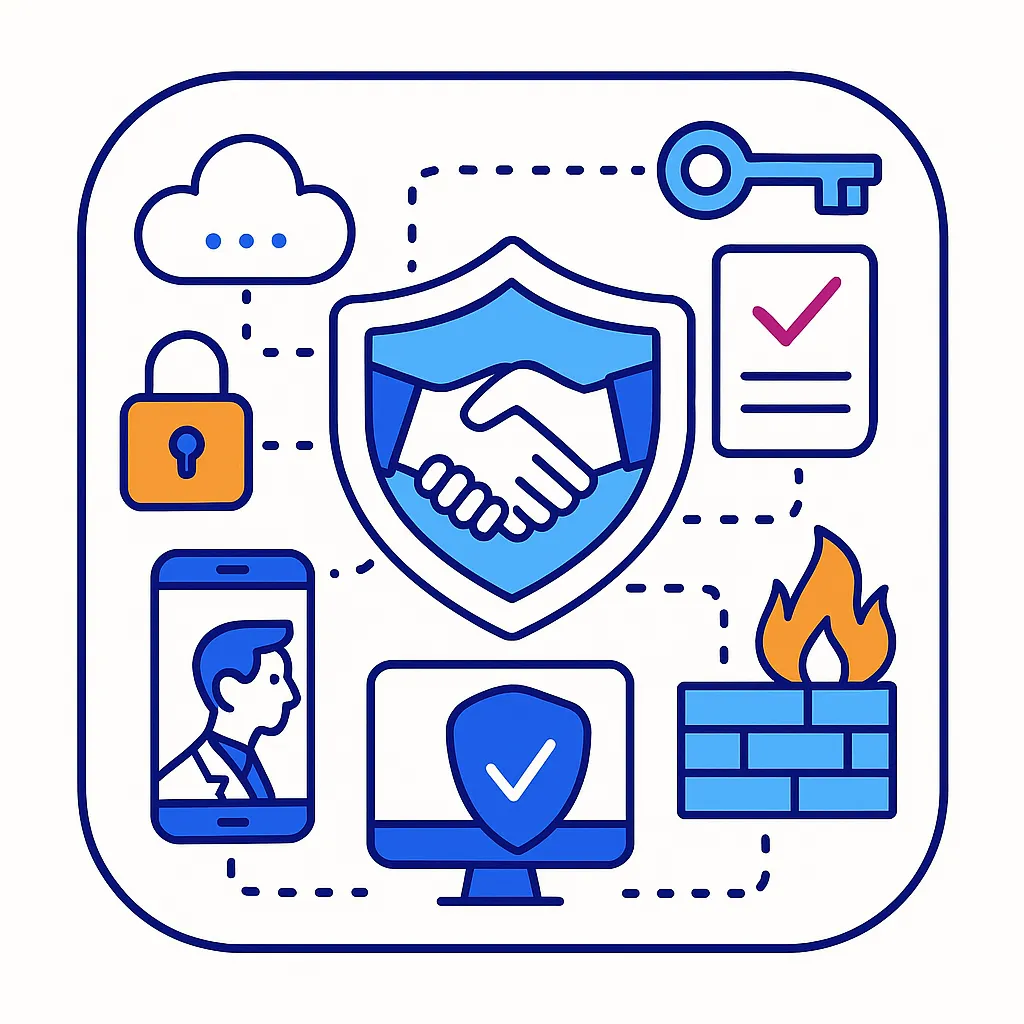
Understanding and adhering to local regulations allows pharmaceutical companies to develop marketing strategies that are both compliant and effective in medical affairs.
This often involves working closely with legal teams and regulatory bodies to ensure that all marketing efforts meet the necessary standards.
Data Privacy and Security Concerns
Pharmaceutical companies must prioritize safeguarding sensitive personal information to avoid potential data breaches. Mishandling data can lead to significant reputational damage and legal implications. Implementing robust security measures to safeguard data privacy is essential for pharmaceutical companies.
Adopting advanced security technologies and protocols helps pharma companies mitigate the risks associated with data breaches.
Continuous monitoring and regular audits are also crucial for maintaining data integrity and ensuring compliance with data privacy regulations.

Integration and Consistency Across Channels
Discrepancies in digital and face-to-face interactions and technology integration issues can lead to fragmented and inconsistent customer experiences across various touchpoints. Accurate attribution of marketing efforts is challenging when channels do not work together seamlessly.
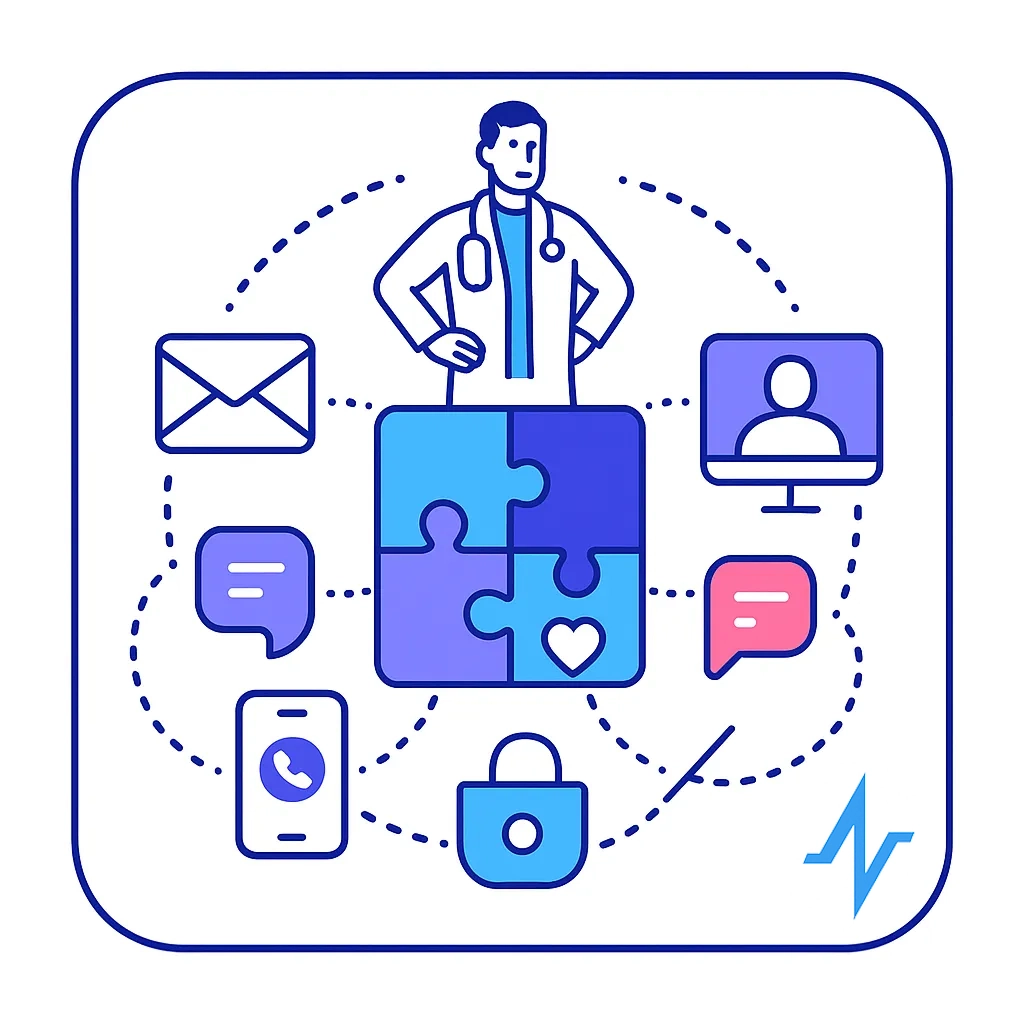
The integrated data across platforms enhances the journey for HCPs, ensuring that communication channels are cohesive and providing a unified customer experience.
This integration prevents content access points from becoming dead ends, facilitating a more engaging customer journey.
Practical Steps to Develop an Omnichannel Strategy
Developing an omnichannel strategy involves several practical steps, including adopting a customer-centric approach, leveraging technology and data analytics, and partnering with experts. These steps ensure consistent messaging and engagement across all platforms, optimizing marketing efforts based on audience needs during their customer journey.
Customer-Centric Approach
Understanding customer needs provides a single customer view across channels, informing relevant communications. Identifying target audience involves considering their specific needs, goals, and where they are in the customer journey. Implementing customer-centricity in engagement strategies leads to utilizing omnichannel customer journeys.
Creating interactive, personalized content is critical for stakeholder engagement in multichannel marketing for pharma.
By understanding complex customer journeys and preferences, companies can design a seamless omnichannel experience that enhances customer engagement and satisfaction throughout the customer lifecycle.
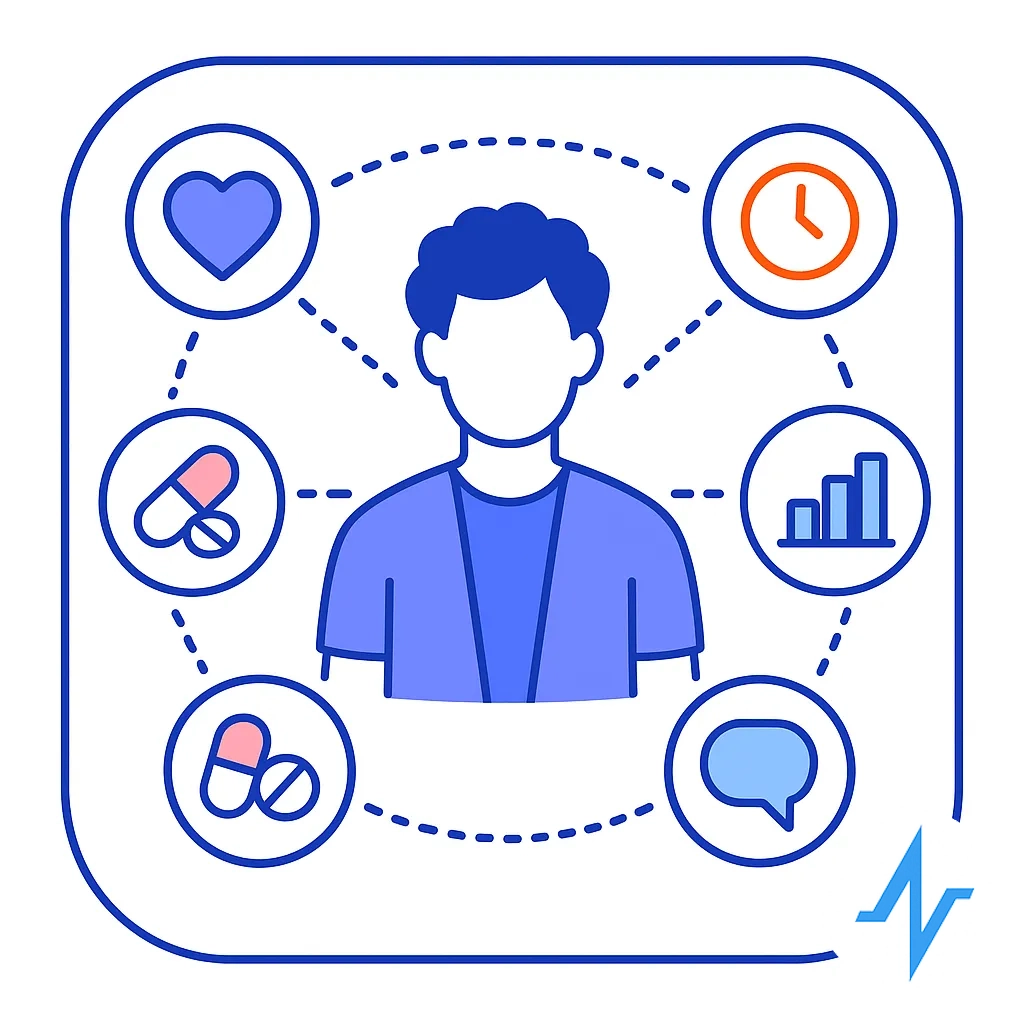
Leveraging Technology and Data Analytics
Advanced data analytics techniques allow pharma companies to monitor customer interactions effectively, enabling the customization of marketing strategies. The Pulse Engagement Cloud aggregates brand information, enabling efficient automation of campaigns across diverse platforms. This centralization of brand data allows for the automation of marketing workflows to improve campaign efficiency.
Leveraging technology and data analytics provides pharmaceutical companies with better customer insights, leading to more targeted communications and a seamless experience. This data-driven approach ensures that marketing efforts are optimized based on real-time customer interactions and preferences.
Partnering with Experts
Partnering with experts in omnichannel marketing helps pharmaceutical companies leverage specialized knowledge and experience. Collaborating with specialized agencies can enhance the efficiency of omnichannel strategies by providing tailored insights and access to advanced marketing technologies. Through expert partnerships, pharmaceutical companies can gain access to specialized skills, advanced technology, and deep industry understanding that can significantly enhance their marketing efforts.

Effective collaboration with experts can drive innovation and improved performance in executing omnichannel marketing strategies.
Working with experienced partners enables pharma companies to develop and implement more effective marketing campaigns, leading to improved customer engagement and outcomes.
Empowering Pharma Sales Reps for the Omnichannel Era
The pharmaceutical industry is rapidly evolving, and pharma companies are increasingly adopting omnichannel strategies to deliver a seamless customer experience. In this new landscape, sales representatives are more than just the face of the company — they are essential connectors across multiple channels, driving customer engagement and ensuring that every interaction is meaningful and consistent. Empowering sales reps with the right skills, tools, and integration into omnichannel workflows is crucial for maximizing the impact of marketing efforts and enhancing the overall customer experience.
Training for Digital Engagement
As digital channels become central to pharma marketing, sales reps must be equipped to engage healthcare professionals (HCPs) and patients through a variety of platforms. Effective training should focus on helping sales reps master digital engagement strategies, including the use of email marketing, mobile apps, and social media to reach their target audience.
Pharma marketers should provide practical training on creating personalized content and developing tailored solutions that address the specific needs of HCPs and patients.
By empowering sales reps to deliver more targeted communications and adapt their approach to different digital touchpoints, pharma companies can ensure that every customer interaction is relevant, timely, and impactful — ultimately leading to improved customer experiences.

Integrating Sales Reps into Omnichannel Workflows
For omnichannel strategies to succeed, it is essential that sales reps are fully integrated into the broader marketing ecosystem. Pharma companies should provide sales reps with access to integrated data and actionable insights, enabling them to understand complex customer journeys and make informed decisions during their interactions.

Leveraging dynamic analytics allows sales reps to track preferences and behaviors, while local market insights help tailor marketing efforts to specific audiences.
By embedding sales reps into omnichannel workflows, pharma companies can enable smarter campaigns and deliver more targeted communications, ensuring a unified customer experience across all touchpoints.
This integration not only enhances the effectiveness of marketing efforts but also empowers sales reps to contribute to a seamless and engaging customer journey.
Enhancing HCP Relationships through Hybrid Approaches
Building strong relationships with healthcare professionals requires a blend of traditional and digital engagement strategies. By adopting a hybrid approach, pharma sales reps can combine the personal touch of face-to-face interactions with the efficiency and reach of digital platforms.
This customer-centric approach allows sales representatives to deliver personalized content and targeted communications, while also responding empathetically to the unique needs of each HCP.
Utilizing digital platforms for ongoing communication and information sharing, alongside in-person meetings, creates a more engaging and unified customer experience.
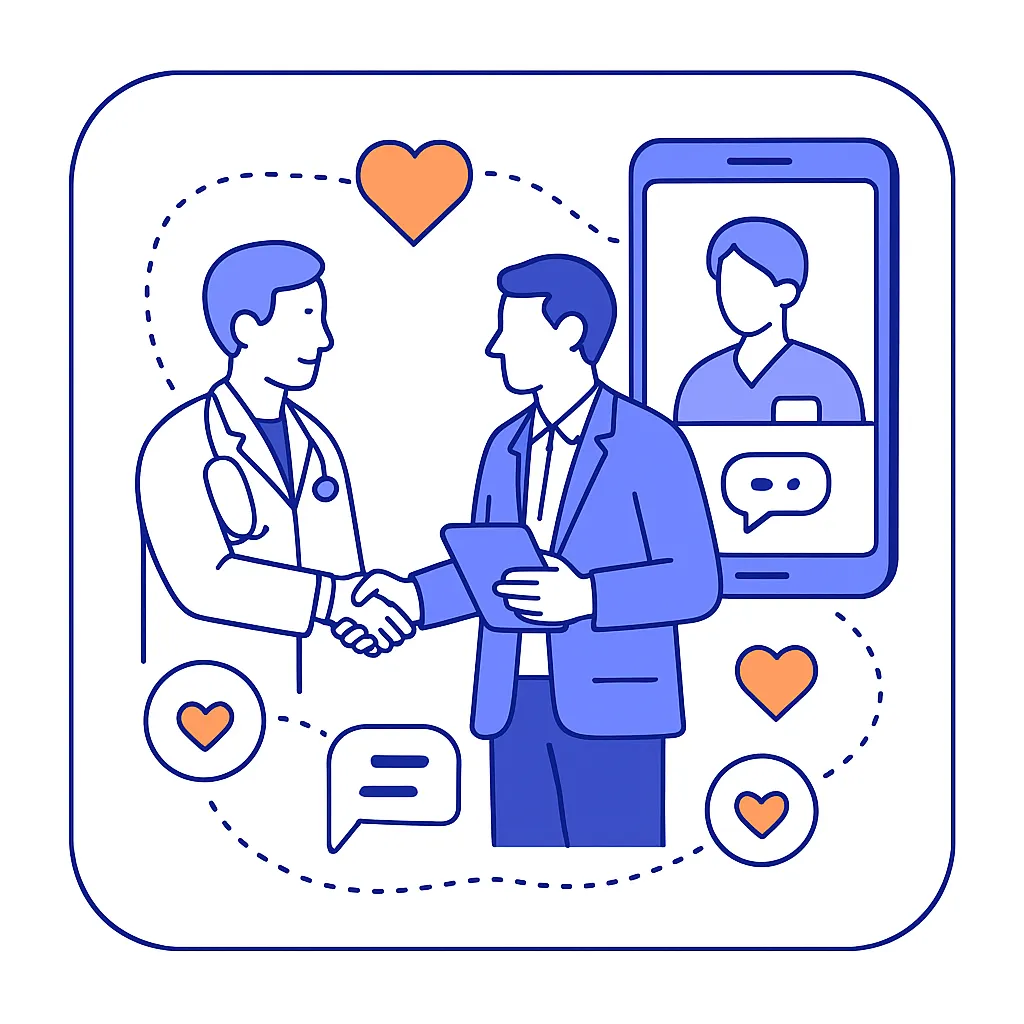
Ultimately, empowering sales reps to navigate multiple channels and adopt a customer centric approach strengthens customer engagement, supports more effective marketing campaigns, and ensures that pharma companies remain at the forefront of omnichannel customer engagement.
How Pulse Health Can Enhance Your Omnichannel Strategy
Pulse Health is a cloud-based engagement platform tailored for the life sciences industry. It helps pharmaceutical and biotech companies connect with healthcare professionals and patients throughout a product’s lifecycle, offering integrated solutions that streamline marketing efforts across various channels.
Utilizing the Pulse Engagement Cloud
The Pulse Engagement Cloud provides:
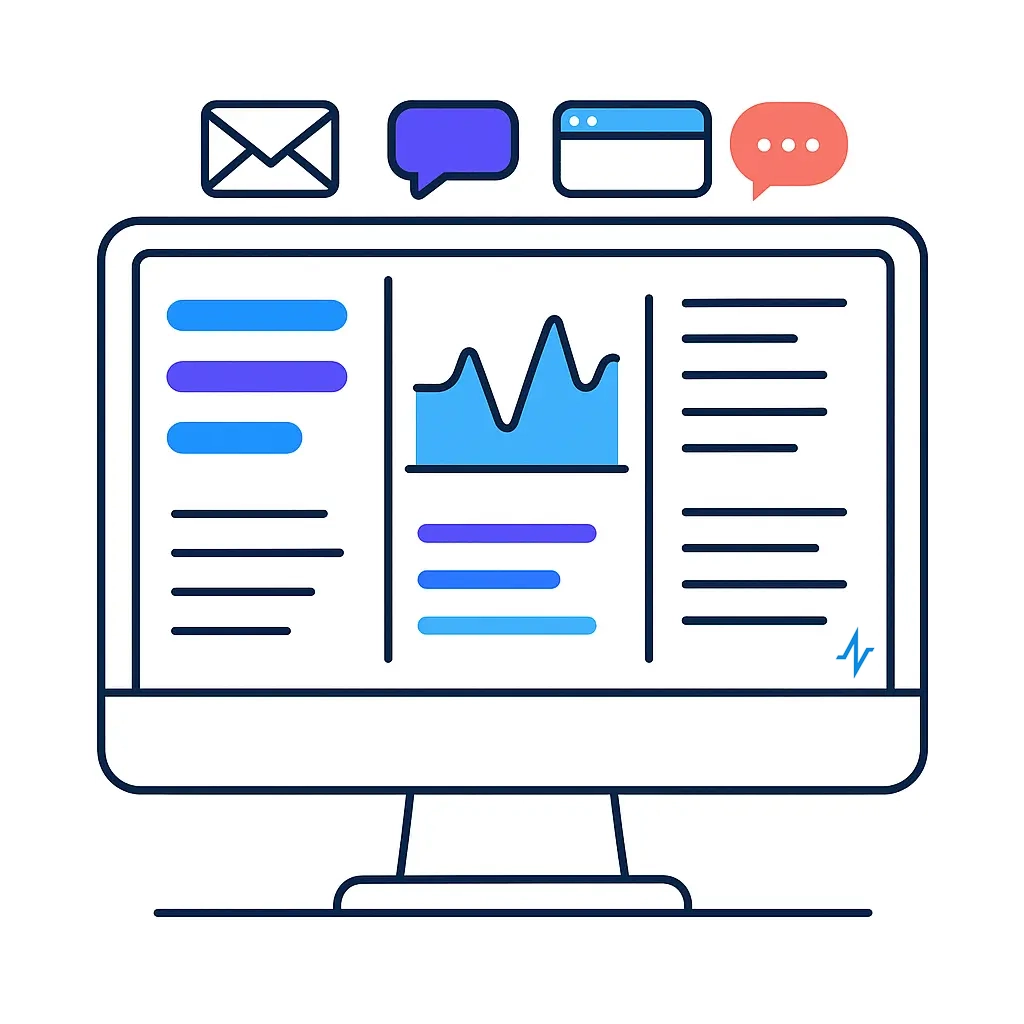
- A complete, real-time view of how target HCPs interact with brands across multiple channels, centralizing data under one roof.
- A SaaS platform that enables the building and automation of omnichannel campaigns across email, SMS, fax, and direct mail.
- Tools for driving data-driven growth with hyper-personalized, targeted messaging and insights.
Centralizing brand data and integrating with over 45 pharma-specific partners, the Pulse Engagement Cloud ensures a seamless customer experience and omnichannel engagement in pharma. This integration ensures that all communication channels are cohesive, providing a unified customer experience that encourages further engagement after initial contact.
Real-Time Analytics and Performance Tracking
Pulse Analytics offers real-time reporting and performance tracking, allowing marketers to adjust strategies based on immediate insights. This capability provides immediate visibility into campaign metrics, helping teams adjust strategies as needed to optimize performance and engagement.
With instant tracking and evaluation of campaign performance, Pulse Analytics provides actionable insights that facilitate rapid strategy adjustments.
This real-time visibility into campaign effectiveness and HCP behavior ensures that marketing efforts are always aligned with the latest data, enabling a more responsive and effective approach to omnichannel engagement.
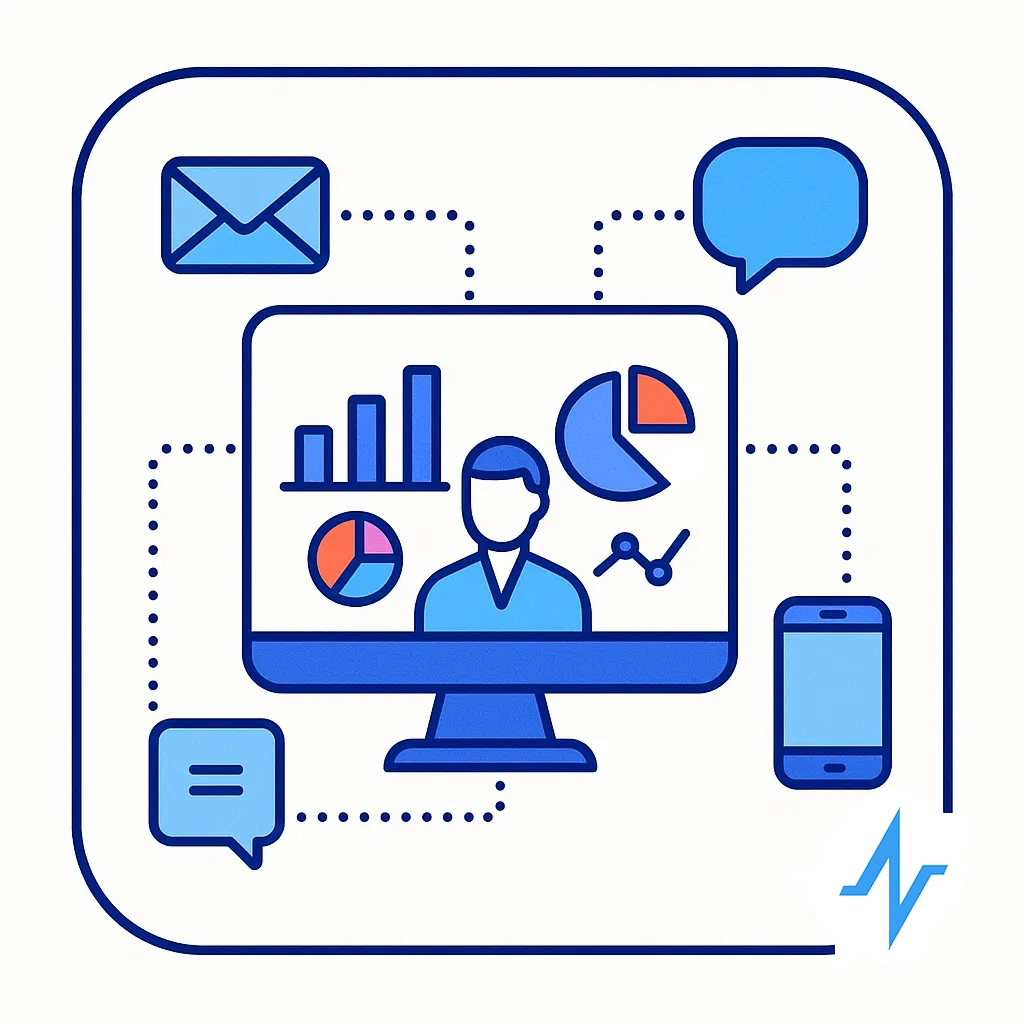
Certification Programs for Enhanced Skills
Pulse Health’s certification program equips marketers with the skills to fully leverage the Pulse platform, enhancing their capabilities in pharma marketing. By completing the Pulse Certified program, users can earn certification, master features, and significantly enhance their engagement strategies.

This program provides essential training, ensuring that enable marketers are well-versed in the latest tools and techniques to enable smarter campaigns for email marketing and omnichannel engagement.
With these enhanced skills, the Marketing Team can develop more effective and innovative campaigns, driving better outcomes and stronger customer relationships.
Get Started with Pulse Health Today
Omnichannel marketing in the pharmaceutical industry is not just a trend but a critical strategy for effective customer engagement. By understanding the differences between multichannel and omnichannel approaches, and by implementing key components such as personalized content, seamless connectivity, and comprehensive metrics, pharma companies can significantly enhance their marketing efforts.
Overcoming challenges such as regulatory constraints, data privacy concerns, and channel integration is essential for a successful omnichannel strategy.
Pulse Health stands out as a powerful ally in this journey, offering tools like the Pulse Engagement Cloud and real-time analytics, as well as certification programs to enhance marketing skills.
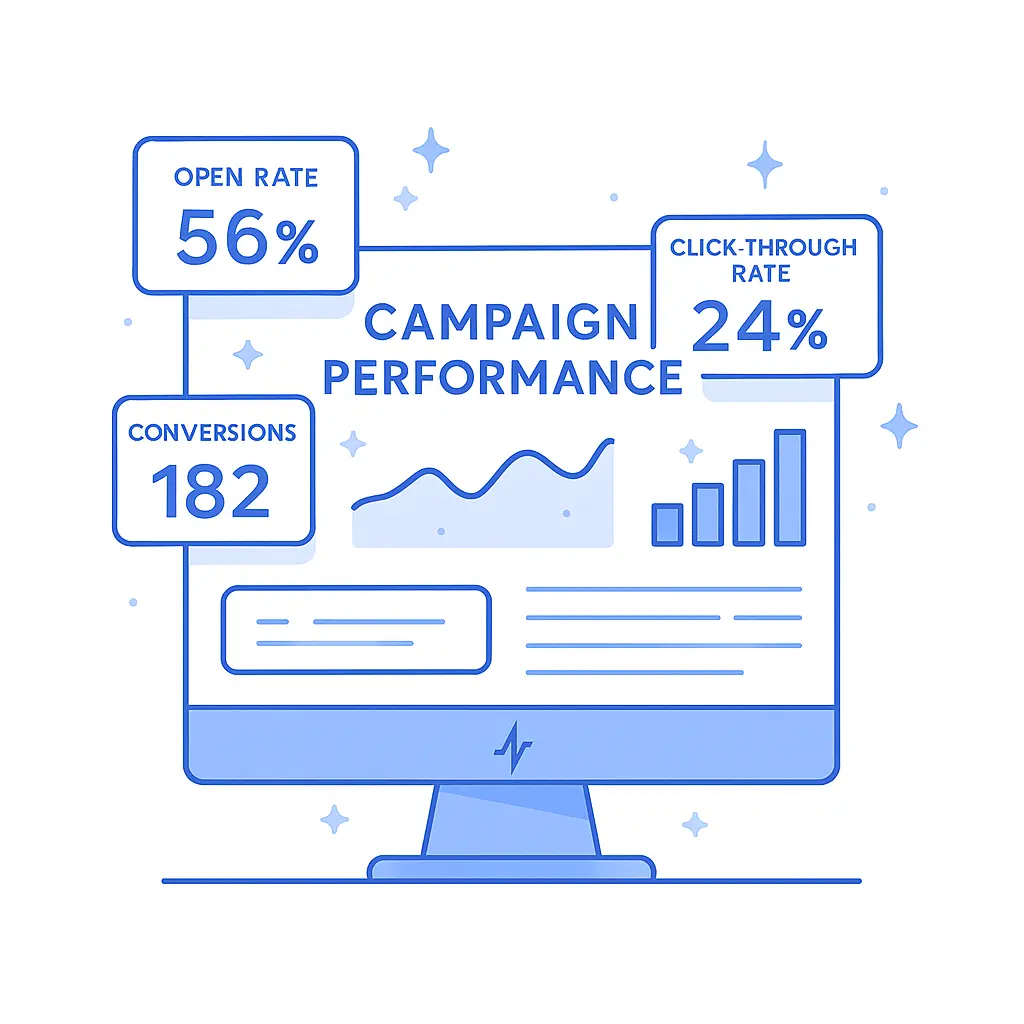
By leveraging these resources, pharmaceutical companies can achieve a seamless customer experience, improved customer insights, and more effective engagement strategies. Embrace the future of pharma marketing with omnichannel strategies and elevate your brand’s performance to new heights.
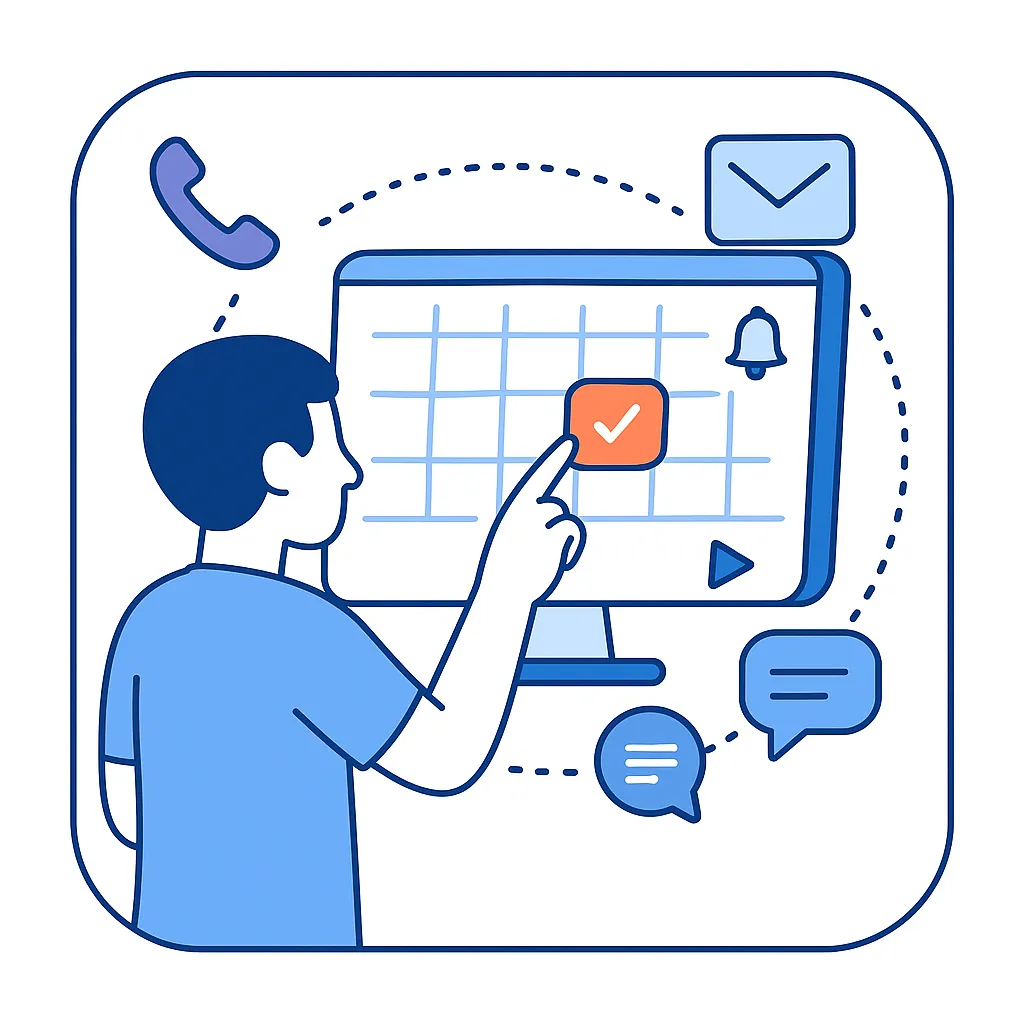
Ready to elevate your omnichannel marketing strategy?
Schedule a personalized demo with Pulse Health to explore our advanced CRM solutions tailored specifically for the pharmaceutical sector.
With features like real-time tracking, advanced analytics, and seamless integration with Veeva CRM, Pulse Health can help streamline your operations and enhance compliance. Don’t miss out on the opportunity to optimize your marketing efforts and achieve better engagement with healthcare professionals.
Schedule your demo today!
Frequently Asked Questions
The core difference is that multichannel marketing operates through distinct channels independently, whereas omnichannel marketing integrates these channels for a seamless and cohesive user experience. This integration enhances the effectiveness of reaching healthcare professionals.
The pandemic has led pharmaceutical companies to enhance their omnichannel marketing strategies to better engage and connect with their audience, reflecting a crucial shift in their approach. This transformation ensures that they can effectively reach their customers across multiple platforms.
A successful omnichannel marketing strategy in pharma hinges on delivering relevant content, ensuring seamless connectivity across platforms, and measuring success metrics to evaluate effectiveness. By focusing on these components, you can enhance patient engagement and optimize your marketing efforts.
Pulse Health enhances omnichannel marketing strategies for pharmaceutical companies by offering the Pulse Engagement Cloud, which facilitates campaign automation and performance tracking, along with real-time analytics and certification programs to improve marketing capabilities. This comprehensive support empowers companies to effectively engage their audience across multiple channels.
To develop an effective omnichannel strategy, pharmaceutical companies must adopt a customer-centric approach while leveraging technology and data analytics. Partnering with experts will help maintain consistent messaging and engagement across all platforms.
